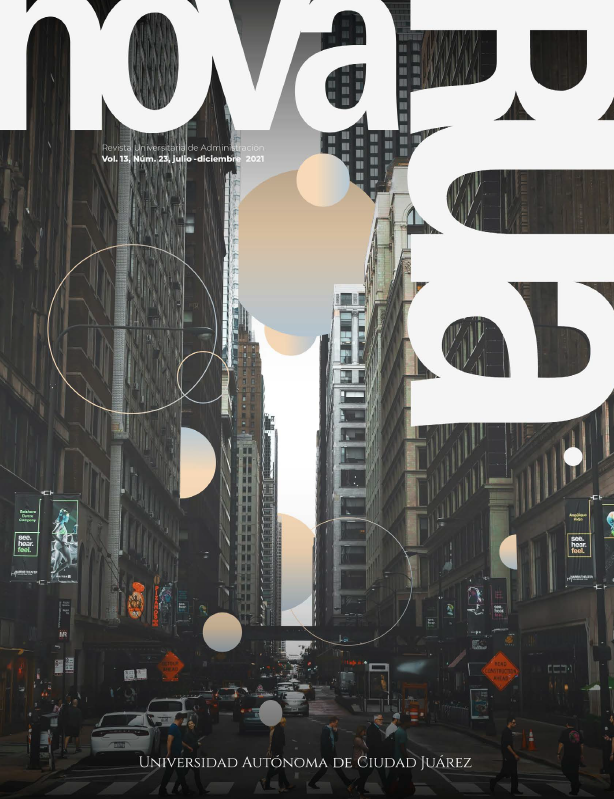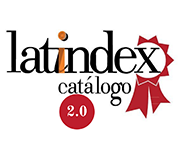Soft and technical abilities in the engineering profession in Costa Rica. Technologies focus approach
DOI:
https://doi.org/10.20983/novarua.2021.23.4Keywords:
Engineering, Soft skills, Technical skills, Professional profiles, TechnologiesAbstract
The paper discusses the theoretical and practical aspects related to the existence and application of technical skills, also understood as hard skill, as well as the soft skills, in the field of engineering, performing an analysis based on field data obtained from a sample of 132 active engineers in Costa Rica, in their respective fields. The data approach was done according to the behavioral pattern of these individuals, as well as their behavior in professional performance. Once skills are analyzed, an information crossover is presented, in which the relationships between the most important skills in the engineering profession are related to the technological and computer application requirements that allow to maximize the skills in question.
References
Alonso, F., Martínez, M. y Segovia, J. (2005). Introducción a la ingeniería del software: Modelos de desarrollo de programas. Delta Publicaciones.
Anderson, J. (2008). Redes neurales. Alfaomega.
Anderson, D., Sweeney, D., y Williams, T. (2008). Estadística para Administración y Economía (10ª Ed.). Cengage Learning.
Alvarado, J. y Santiesteban, C. (2011). La validez en la medición psicológica. UNED Publicaciones.
Barato, J. (2017). El director de proyectos a examen. Guía de estudio en español para la capacitación del directos de proyectos. Editorial Díaz de Santos.
Bermúdez, J., Pérez, A., Ruíz, J., Suárez, P. y Rueda, B. (2012). Psicología de la personalidad. Universidad Nacional de Educación a Distancia. Recuperado de: http://hdl.handle.net/20.500.12226/603.
Blanco, A. (2009). Desarrollo y evaluación de competencias en Educación Superior. Narcea S. A. de Ediciones.
Cowan, L. (2006). Edges of Experience: Memory and Emergence: Proceedings of the 16th international IAAP congress for analytical psychology. Daimon.
Coser, L. (2019). Maestros del pensamiento sociológico. Las ideas en su contexto histórico y social. Centro de Investigaciones Sociológicas.
Crisman, R. (2016). La construcción de escalas de medición para la investigación lingüística y sus aplicaciones didácticas. Una propuesta con respecto a la modalidad lingüista andaluza. ACCI Ediciones.
Currea, C. C. (2007). Estudios de género en el DANE. Pontificia Universidad Javeriana.
Font, B. (2011). Programación matemática para la economía y la empresa (2a ed.). Universitat de Valencia.
Galera, E. (2015). Relación entre inteligencias múltiples, creatividad y rendimiento académico en matemáticas. AntropiQa.
González, O. y Villamil, M. (2013). Introducción a la ingeniería. Una perspectiva desde el currículo en la formación del ingeniero. Ediciones Ecoe.
Guarin, C. y Montoya, O. (2020). Fisioterapia en salud mental. Editorial Universidad del Rosario.
Kolb, B. y Whishaw, I. (2008). Neuropsicología humana (5ª Ed.). Editorial Médica Panamericana.
Luna, F., Peña, C. y Iacano, M. (2018). Programado web full stack. Desarrollo frontend y backend. Buenas prácticas: análisis, test y optimización. Redusers.
Márquez, A. (2020). Principios neurológicos y psicológicos de la inteligencia emocional. Centro de Capacitaciones e Innovación Educativa.
Martí-Lobo, P. (2015). Procesos y programas de neuropsicología educativa. Secretaría General Técnica. Centro de Publicaciones. Ministerio de Educación, Cultura y Deporte.
Navarro, J. (2011). Epistemología y metodología. Grupo editorial Patria.
Renvoisé, P. y Morin, C. (2010). Neuromarketing. El nervio de la venta. Editorial UOC.
Rimé, B. (2012). La compartición social de las emociones. Editorial Desclée de Brouwer, S. A.
Sánchez, J. (2020). Perfiles neuro-conductuales en la ingeniería en Costa Rica: Propuesta de modelo teórico y neuro-inductivo de perfiles profesionales. Revista Nuevo Humanismo, 8(2), 30. DOI: https://doi.org/10.15359/rnh.8-2.3.
Solomon, M. (2013). Comportamiento del consumidor (10a Ed.). Pearson.
Tacchino, A. (2016). Perfil profesional del ingeniero industrial y comercial en una universidad privada: percepciones de académicos y empleadores (Tesis doctoral). Universidad San Ignacio de Loyola. Recuperado de: http://repositorio.usil.edu.pe/handle/USIL/1923.
Tovar, R. (2012). Habilidades gerenciales. Desarrollo de destrezas, competencias y actitud. Ecoe Ediciones.
Umaña, P. y Vargas, L. (2018). La participación de las mujeres continúa relegada en las ciencias. Noticias UCR, 10.
Worboys, G., Lockwood, M. y Kothari, A. (2019). Gobernanza y gestión de áreas protegidas. Editorial Universidad del Bosque.
Downloads
Published
Issue
Section
License
Copyright (c) 2021 Juan Diego Sánchez Sánchez

This work is licensed under a Creative Commons Attribution-NonCommercial-ShareAlike 4.0 International License.
All contents of the electronic edition of the journal are distributed under a license and distribution "Creative Commons Attribution-Noncommercial-ShareAlike 4.0 International" (CC-BY-NC-SA). You can see from here the informative version of the license.
Those authors/publications as having this journal agree to the following terms:
a) Is allowed and recommends authors / as disseminate their work via the Internet (p. eg .: institutional telematic files or on their website), which can produce interesting exchanges and increase appointments of the published work. (See The Effect of Open Access).












